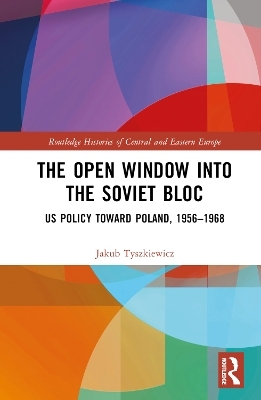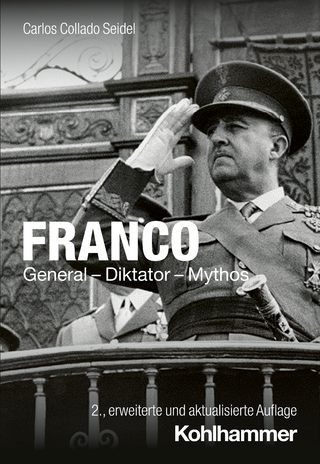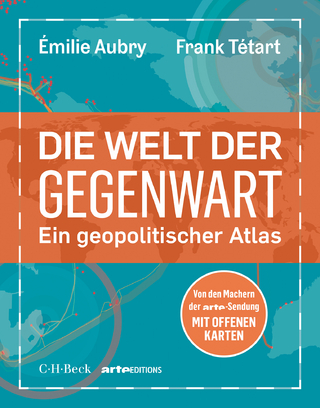
The Open Window into the Soviet Bloc
Routledge (Verlag)
978-1-032-33237-6 (ISBN)
This volume analyzes US policy toward communist-ruled Poland in the fields of diplomacy, economy, culture, and public diplomacy. It highlights the limitations in developing cooperation between democratic and nondemocratic countries resulting from the Cold War conflict.
No comprehensive account of US policy toward Poland from 1956 to 1968 has emerged in historiography. This book aims to answer why, since the political changes of the Polish October 1956, Washington ceased to see Polish affairs as “Soviet-related matters.” Instead, it recognized communist-ruled Poland as a separate political entity among other Kremlin-dependent states in Eastern Europe. This policy, introduced by the Dwight D. Eisenhower administration, was continued by his successors John F. Kennedy and Lyndon B. Johnson.
Recently declassified US and Polish archival sources allow the presentation of more considerations around the decision-making mechanisms by presidential administrations regarding communist Poland after 1956. They also reveal the dependence of the implementation of US actions on the climate of international relations. Moreover, they can now explain how Poland became an “open window” toward the Soviet bloc and a model example of the changes in the US policy of diversifying its approach to Eastern European countries under Soviet control in the next decades.
Jakub Tyszkiewicz is a historian at the University of Wrocław, specializing primarily in US-Polish relations during the Cold War. He has been a visiting professor at many universities, including the University of Washington in Seattle as a Fulbright Scholar and the Hebrew University of Jerusalem.
Introduction. PART I: An Open Window in the Iron Curtain: During the Presidency of Dwight D. Eisenhower 1. The United States and Polish October 2. The Swan Song of the Liberation 3. First PL 480 Agreement 4. Activities at the Political Level 5. Activities at the Economic Level 6. Public Diplomacy: Cultural and Scientific Cooperation and Humanitarian Aid 7. Radio Free Europe in the Eisenhower Administration’s Policy toward Poland PART II: “Don’t Shut the Door”: During the Presidencies of John F. Kennedy and Lyndon B. Johnson 8. New Hopes and First Disappointments 9. Economic Negotiations in the Shadow of Politics 10. Other Fields of Cooperation 11. The Laborious “Bridge Building” 12. Poland in the Policy of “Bridge Building” 13. RFE and Other Propaganda Efforts PART III: The Dilemma of Oder-Neisse Border 14. The Polish Western Border in US Considerations. Conclusion
| Erscheinungsdatum | 03.10.2023 |
|---|---|
| Reihe/Serie | Routledge Histories of Central and Eastern Europe |
| Verlagsort | London |
| Sprache | englisch |
| Maße | 156 x 234 mm |
| Gewicht | 453 g |
| Themenwelt | Geschichte ► Allgemeine Geschichte ► Zeitgeschichte |
| Geisteswissenschaften ► Philosophie | |
| Sozialwissenschaften ► Soziologie ► Spezielle Soziologien | |
| ISBN-10 | 1-032-33237-9 / 1032332379 |
| ISBN-13 | 978-1-032-33237-6 / 9781032332376 |
| Zustand | Neuware |
| Informationen gemäß Produktsicherheitsverordnung (GPSR) | |
| Haben Sie eine Frage zum Produkt? |
aus dem Bereich


